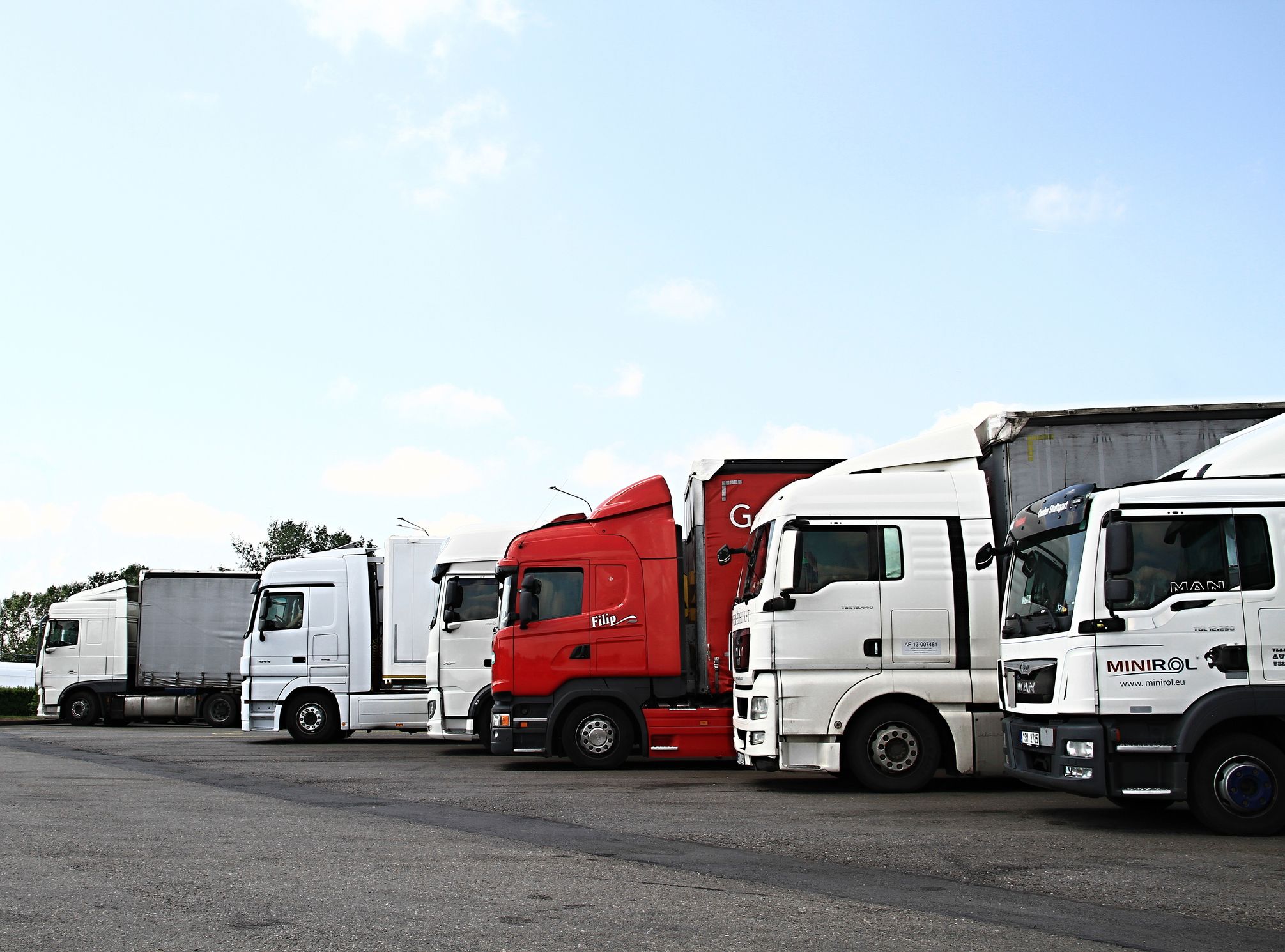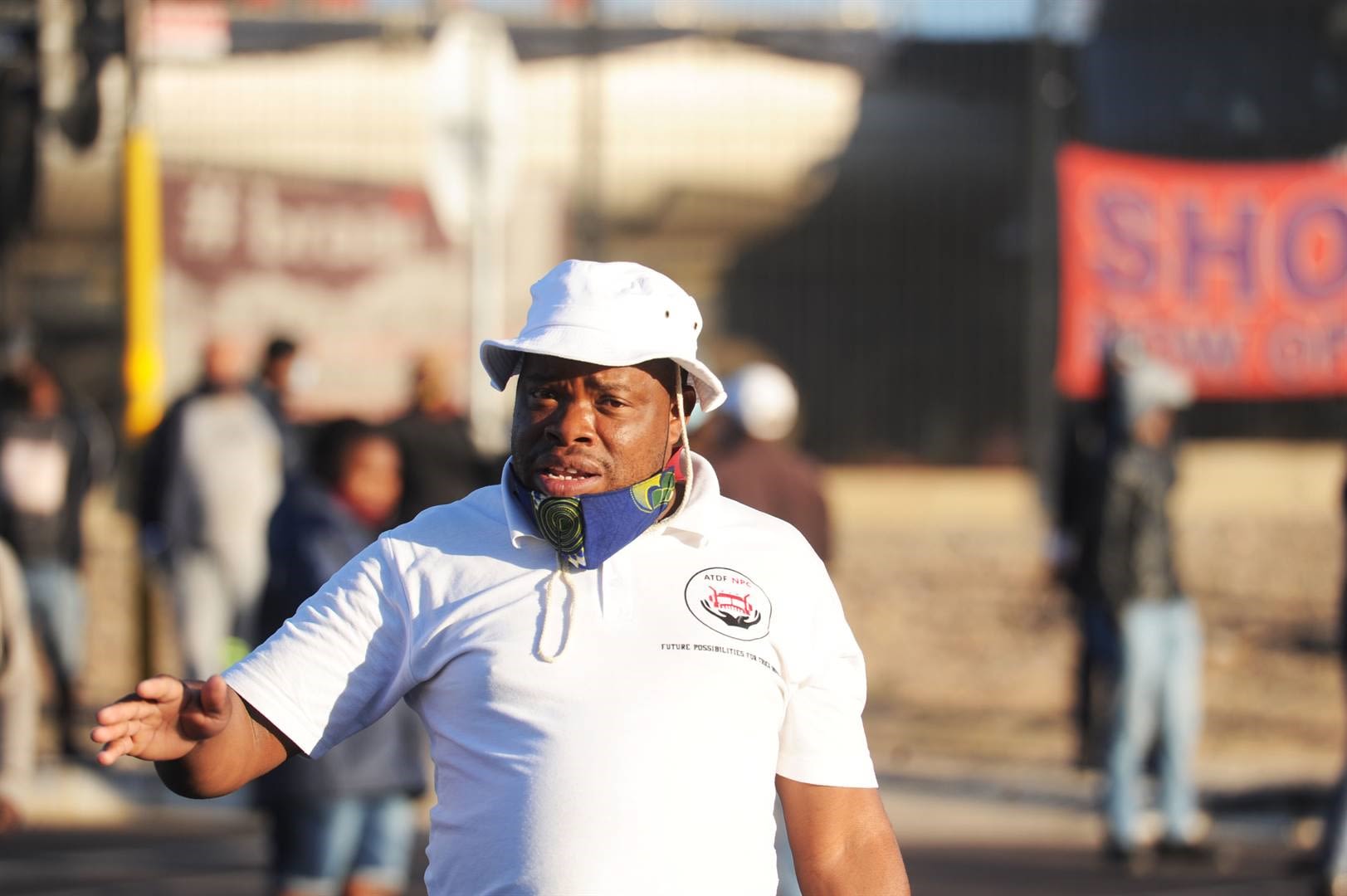Government ‘must act’

Truck drivers in the Southern African Development Community (SADC) region should unite to solve challenges the trucking industry is facing, instead of fighting each other.
Edward Muchatuta, leader of the SADC Truck Drivers’ Association, told City Press that truck drivers in the region “should be dealing head on with employers and our governments as a unit instead of fighting each other because we all have the same issues”.
“The problem is not with foreign truck drivers,” Muchatuta said.
“The South African government and police enjoy seeing the fighting that is happening within the trucking industry, because they are aware of people breaking the law in the industry by employing people without proper documentation, yet they do nothing and let us fight.”
Muchatuta, a Zimbabwean based in Johannesburg, drives both locally and cross border. He said while some local truck drivers are crying foul over trucking companies hiring illegal immigrants instead of South Africans, it was questionable why government had not intervened.
“If it is public knowledge, then the law should have taken its course. If South African truck drivers are saying that trucking companies are employing foreign nationals without proper documentation or paying them unfair wages, it means it is common knowledge. Why then is the government not taking action against these trucking companies?
“Trucks on the road are constantly being stopped at roadblocks, but we have never heard of a truck being impounded because it is being driven by an illegal truck driver. We have never heard of an employer being arrested for employing an illegal immigrant,” Muchatuta said.
“For them [government], the only way this can be solved is for blood to be shed and that is wrong.”
Having been a truck driver for more than 10 years, Muchatuta added that attacks on foreign nationals were not new as “this has been building up for years”.
“This has been building up, because initially it was said that the entire SADC region was facing problems whereby we have governments that are not enforcing laws,” he said. “In my opinion, this started because employers are employing illegal immigrants either knowingly or unknowingly.
“Attacks on what they call foreign truck drivers is not something new, but how can I be a foreign truck driver in the SADC region?”
Last year, City Press reported that foreign truck drivers were saying that if attacks on them continued, they could not rule out retaliation on South African drivers in their own countries.
Read: Foreign truck drivers warn of retaliation on SA drivers if attacks continue
To this Muchatuta said: “We are trying by all means not to take the retaliation route against South Africans. However, there is a possibility that incidents of drivers trying to defend themselves have happened.
“We are being killed for things that the South African government can easily solve. We agree that we are facing challenges as truck drivers in the SADC region but we don’t agree with the way our South African counterparts are dealing with them.”
Muchatuta was speaking in the wake of a strike by truck drivers earlier this month which they said was to “ensure that South African companies stop hiring foreign nationals”.
The local truck drivers said they were not happy with foreign nationals being employed in high numbers instead of locals.
During the strike, All Truck Drivers Foundation (ATDF) secretary, Mandla Mngomezulu, told City Press: “The main reason that these local trucking companies hire foreign nationals over South Africans is because they are avoiding complying with the necessary safety regulations and other things – including registering employees for unemployment insurance fund.”

Mandla Mngomezulu. Picture: Rosetta Msimango/City Press
Mandla Mngomezulu. Picture: Rosetta Msimango/City Press
To this, Muchatuta said: “Employers are taking advantage of law enforcers who are not doing their work. And that is not our fault.”
Timothy Rukombo (49), a Durban-based truck driver who hails from Zimbabwe, said although he lived in constant fear, he had no choice but to continue working.“I have a family to look after. I fear for my life, but I need to work. I am the breadwinner,” Rukombo told City Press.
“The burning of trucks is not a solution. We are brothers. It doesn’t change anything. What we have to do is sit down and openly address any issues anyone has.
“They can burn trucks as much as they want, they can even burn foreign drivers, but they cannot change the system.
“The system is already there and it needs to be changed, but this is not how it should be done. Most people who have been targeted are Zimbabweans and people cannot be killed or attacked because of employment.”
Like Muchatuta, Rukombo said government needed to take decisive action against law breakers and ensure that laws were followed.
“It’s true that some trucking companies are hiring foreign nationals and offering salaries that are less than what truck drivers should legally be paid. Some people do not have the required documentation and that is illegal,” he said.
“Government should be addressing these issues because some of us do have the required paperwork. I for instance use a refugee status and I am allowed to work in South Africa.”
The father of three, who has been trucking for eight years, said although he had never been attacked, he was aware of several incidents where violence had erupted as South African truck drivers attacked foreign nationals.
“When the strike was happening, a truck was burnt at the harbour and the driver, who was a foreign national, managed to get away,” Rukombo said.
“I, personally, have never been attacked, but I have friends who have called me warning me not to drive on certain routes because attacks on foreign nationals were taking place.
“People cannot retaliate here in South Africa, but those in their home countries such as Zimbabwe for instance, retaliate because South African truck drivers are also based in other countries.
“Because of what we are going through here, those in their home countries are forced to act against the South Africans. It is a ripple effect.
“They say ATDF is for all truck drivers, that is what the name says, they didn’t say it is only for South African truck drivers. If they are willing, we are willing to sit down and talk to them,” Rukombo said.
However, to this Mngomezulu responded: “ATDF is just a name. It is like the name ANC. It is African, but it is not governing Africa, it is governing South Africa. We are not attacking anyone. We are fighting for South African truck drivers because they are being side-lined.”
Sharing Rukombo and Muchatuta’s sentiment, Mngomezulu said that government should enforce the law.
“The Employment Act of 2014, section 8 is what should be enforced,” he said.
“There is no shortage of truck drivers in the country. You can’t employ someone whose status does not allow you to employ.”
According to section 8(1): “An employer may not employ a foreign national within the territory of the Republic of South Africa prior to such foreign national producing an applicable and valid work permit, issued in terms of the Immigration Act.
“The employers must satisfy themselves that there are no other persons in the Republic with suitable skills to fill a vacancy, before recruiting a foreign national,” states the act.
City Press had not received a response from the department of employment and labour at the time this article was published.



